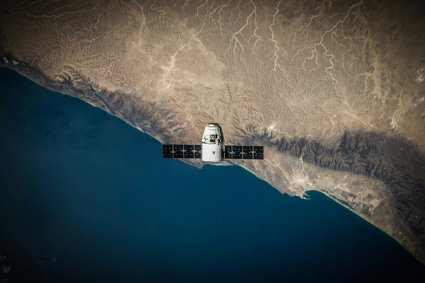
Artificial satellites
Prior Learning
In the previous lesson students should have learned about the solar system being held in place by gravitational attraction and that natural satellites orbit.
Objectives
All students will know that:
-
satellites orbit objects that are much larger than themselves
-
natural and artificial satellites are kept in orbit by gravitational attraction
-
there are two main types of orbit
Most students will know that:
-
the two types of orbit are geostationary and polar orbiting
-
artificial satellites have a variety of uses, including meteorological, communications, scientific research, telescopes.
Some students will know:
-
details about specific artificial satellite
-
examples of information that can be gained from satellites
Starter
Challenge the students to answer the question: "How many things can you think of that we use artificial satellites for?".
Satellite examples could include weather observations (monitoring weather and climate), TV broadcast, telecommunications, scientific research, environmental monitoring, surveillance (spying!/military intelligence), astronomical (telescopes and measurements from outside our atmosphere), navigational (e.g.GPS)
You will need:
-
Starter slide
Main Activity
Recap from last lesson on natural satellites to allow students to remember what a satellite is.
Get students to try making their own satellite using the template supplied.
Meteorology from space
Satellites have been used for weather observations since 1959 when Vanguard 2 was launched.
Use link below to list some of the things that are observed from space.
Types of Satellite
There are two types of satellite orbit; polar orbiting and geostationary. Both are useful for meteorology and other things
You will need:
-
Make your own satellite
-
Artificial satellites slideshow
Plenary
Get students to use the artificial satellites worksheet to demonstrate they understand the differences between polar orbiting and geostationary satellites.
-
Artificial satellites worksheet
File nameFiles
File type
Size
Download
